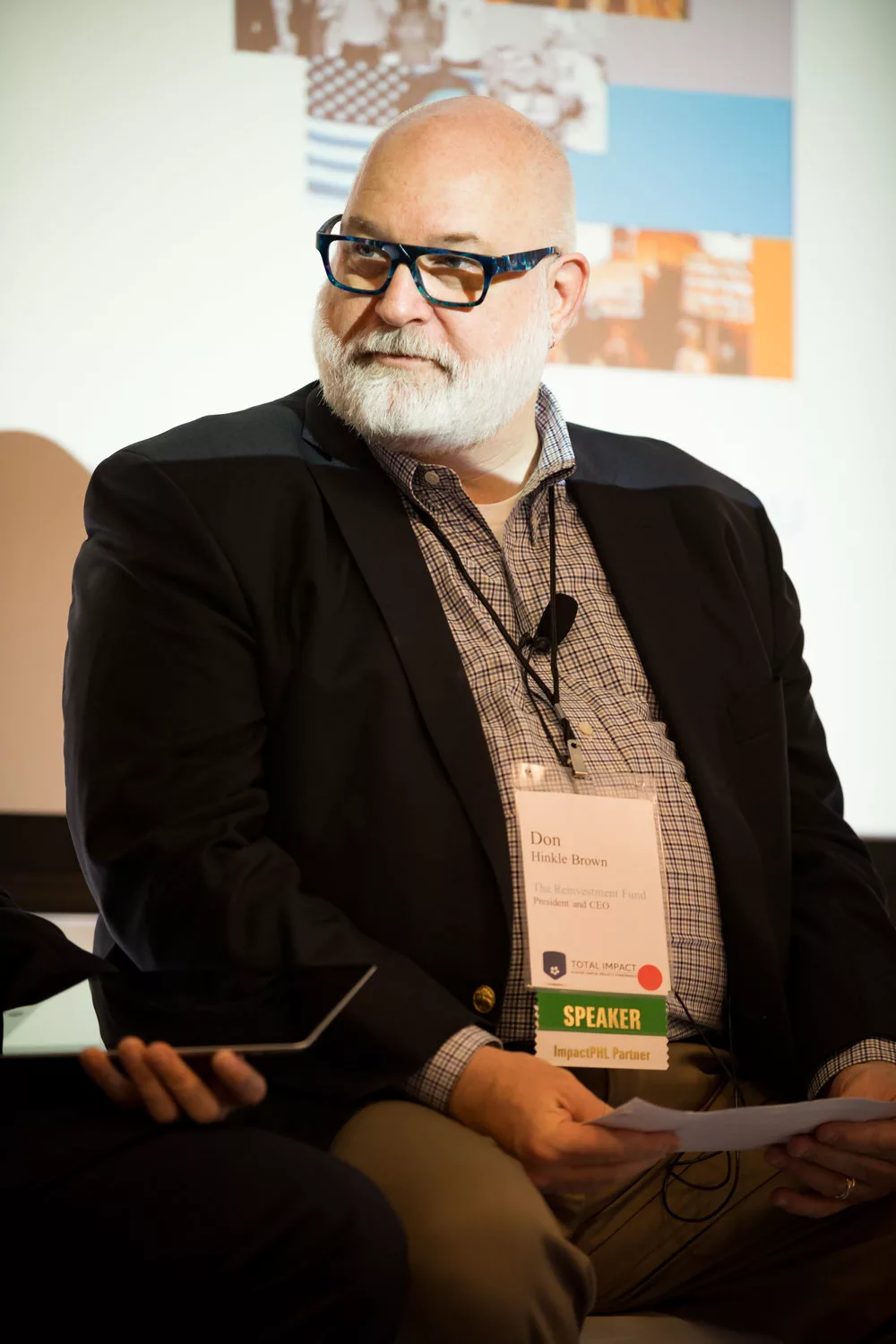What you (impact) invest in is right, but the way you do those investments is not. That is the core message that I’ve been sharing at SOCAP since 2013. Every year, more and more investors believe me, and every year there are more stories being shared about investments that don’t rely on exits.
The expectation of “exits” is the big flaw. The pattern of “invest money, wait, invest more, wait, big exit” (and its associated preferred shares) is an invention of California venture capitalists from the late 1970’s. It was brought to scale only in the 1990’s–just in time for the dot-com boom and bust. This investment style differs from that which funded the railroads, steel works, electrification, telephones, and automobiles, and it shouldn’t be the style used to provide the investment capital to fulfill the sustainable development goals.
We are impact investors. We don’t blindly follow the Carnegie/Gates paradigm of “get rich, then give it away,” but for some reason most everyone is blindly following Sequoia, DFJ, and Kleiner Perkins when it comes to investment structures, despite that structure not working for half of the traditional venture capital funds.
So what is the fix? It’s rather simple.
Invest in the revenues of the investees, rather than an acquisition. This can be done in a form that looks like a loan – lending them money that is paid back as a small percentage of their top-line revenues. It can also be done in a form that has some additional equity upside. You buy some shares and they then buy back half (or most) of those shares at a higher price, using a small percentage of top-line revenue to decide how many shares. Either way, the two sides agree on a total amount for the repayment. Typically between a 50% return and 200% return (a.k.a. 1.5x and 2x).
It takes minutes to create a spreadsheet to figure out the terms. You take the expected revenues of the company over the next few years. You pick a single digit percentage of revenue. You pick a total return. Excel tells you what the expected IRR of the deal is, and you iterate a few times to fine tune those values until everyone is happy.
What you then find is a whole new world of investable companies, and great alignment between investors and investees.
Any company that can earn revenues is now investable. It doesn’t matter what they do, where they do it, or if there has ever been an exit before for a company like theirs. The “investability” of an investment is just related to how much they are raising, how large are their revenues, and whether they have enough net margins to afford the capital.
As for alignment, everyone already wants revenues. If revenues slow down, everyone has an incentive to help grow them. If they speed up, everyone is happy. Investors don’t worry about when their investees will get acquired, or whether they’ll be the next zombie, paying the payroll but not growing fast enough to ever be acquired.
The only real pushback of this idea is that money flows out of the investees before they are profitable. It certainly does. It flows monthly to the employees, to the landlord, to the phone company, and everyone else listed on the expense section of the income statement. Now it also flows to the investors, who were already really just “renting” their capital but without charging a monthly or quarterly rent. That is now visible.
All the other common complaints are irrelevant, most of all that neither the investors nor the investees have experience with this structure and thus it can’t be right. It is. It’s the best structure for any company that isn’t going to be a 1000x return like Amazon, Facebook, or Google. But who in the SOCAP community wants to tout the social impact of Amazon or Facebook or Google?
If you can’t make this year’s workshop, you can catch a recorded version of it here. On that page you’ll find a premade spreadsheet to analyze your next investment in a revenue-based structure. To see 81+ examples of investees that fit this new paradigm, visit fledglings.fledge.co.
Luni Libes is Founder & Managing Director of Fledge, the conscious company accelerator, Co-founder of investorflow.org and author of The Next Step: Guiding you from idea to startup. You can read more of his writings at lunarmobiscuit.com
Luni will speaking at SOCAP18 as part of the workshop: Breaking the Paradigm of the 10x Return, along with Andrea Armeni of Transform Finance, Aner Ben-Ami and Morgan Simon of Candide Group, Jenny Kassan, and Rodrigo Villar of New Ventures. If you haven’t yet gotten your tickets to SOCAP18 to participate in this workshop, you can register for the conference here.
SOCAP is a platform for a wide range of ideas for accelerating the market at the intersection of money and meaning. We welcome guest posts with varying perspectives, though SOCAP does not necessarily endorse or favor the opinions contained within, as fodder for continued discussion and discovery! If you have a guest post idea for SOCAP, please email mandy@jbmediagroupllc.com.





